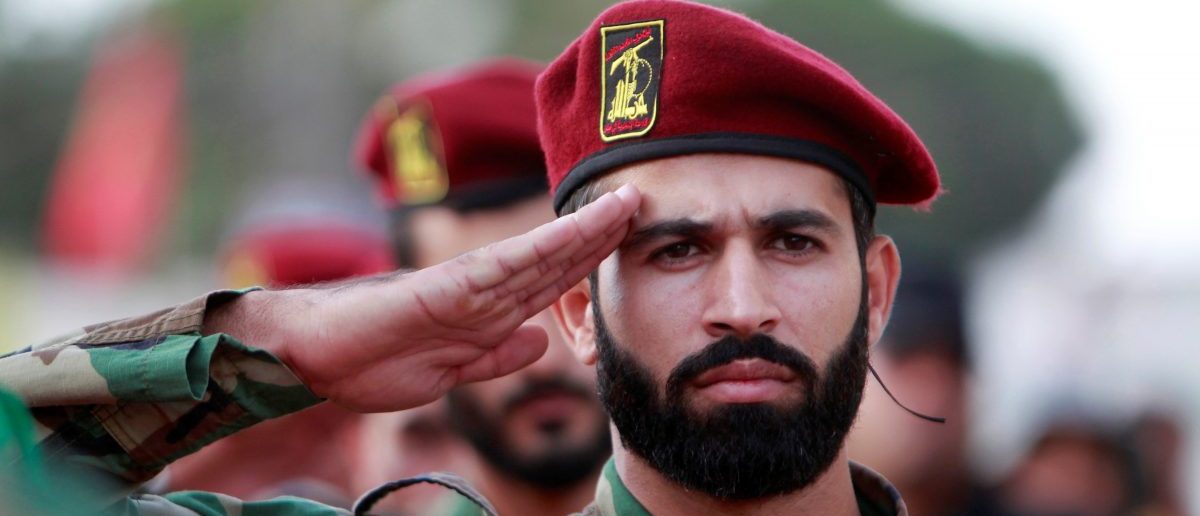The Daily Caller
President Donald Trump’s recent ceasefire agreement with Russia in Syria was meant to improve regional security, but it could have some unintended consequences that could prove dangerous in the future, specifically for Israel.
The U.S. hopes the agreement will stop cross-border issues between Israel and Syria, but the Israelis are concerned that this potential short-term gain will enable Iran to bolster its proxies in the region, most notably Hezbollah, creating a long-term problem. Israeli Prime Minister Benjamin Netanyahu tacitly supported the deal, but made it clear that his government reserves the right to defend itself.
“Israel will welcome a genuine ceasefire in Syria but this ceasefire must not enable the establishment of a military presence by Iran and its proxies in Syria in general and in southern Syria in particular,” Netanyahu said Sunday.
He added that he had spoken with U.S. Secretary of State Rex Tillerson and Russian President Vladimir Putin about Israel’s concerns, both of whom said they will take Israel’s “demands into account.” The Israeli premier also noted that his country will “continue to monitor developments beyond our borders,” including ensuring that Hezbollah is not strengthened.
Netanyahu’s guarded support may be a sign of a grander problem, according to Jonathan Schanzer, senior vice president for the Foundation for Defense of Democracies.
“Really, I think Israel’s concern includes the entire country,” Schanzer told The Daily Caller News Foundation. He explained that Netanyahu’s statement, in conjunction with other warnings by Israeli officials, hints at a problem that extends beyond just one region.
Trump’s ceasefire agreement is limited to southwestern Syria, which borders Israel along the Golan Heights. The region has been a flash point between Israel and forces loyal to Syrian President Bashar al-Assad. Israel has engaged in air strikes against pro-Assad forces in recent months, but its real concern stems from the Iranian and Hezbollah forces located in the area.
Iran has reportedly sent thousands of its forces to fight in Syria on behalf of Assad, including units from its infamous paramilitary Islamic Revolutionary Guard Corps. Additionally, IRGC forces have helped support Hezbollah and various Shiite militias in Syria fighting on Assad’s behalf. In effect, Iran has been primarily responsible for maintaining Assad’s power from a military standpoint.
Hezbollah has been fighting in Syria for years, and the ceasefire may present an opportunity for the IRGC to resupply the beleaguered organization. IRGC and Hezbollah forces have been seen in the “corridor” that connects the Golan Heights to Damascus, the Syrian capital, according to Haaretz’s Amos Harel. This supply route could allow Hezbollah to threaten Israel’s northern border over the long term.
“Until recently, the overall position was they were in no position to fight,” said Schanzer, regarding Hezbollah’s capabilities. He added that the group has a rocket arsenal that easily numbers in the thousands, and that there is now evidence they are building munitions of their own in underground facilities. Israel’s famous Iron Dome missile defense system was built to confront such threats, but it has yet to be challenged in a combat environment by an arsenal comparable to Hezbollah’s.
Iran’s machinations in Syria are likely part of a larger strategy to grasp power across the Middle East which has been ongoing for over a decade. Arab countries allied with the U.S. have expressed grave concern over Iran’s influence in Iraq, Yemen, Syria and elsewhere as its proxies continue to destabilize the region. While the U.S. and its allies continue to focus on defeating the Islamic State, Iran continues to entrench itself, which has the potential to create future conflicts well after ISIS.

